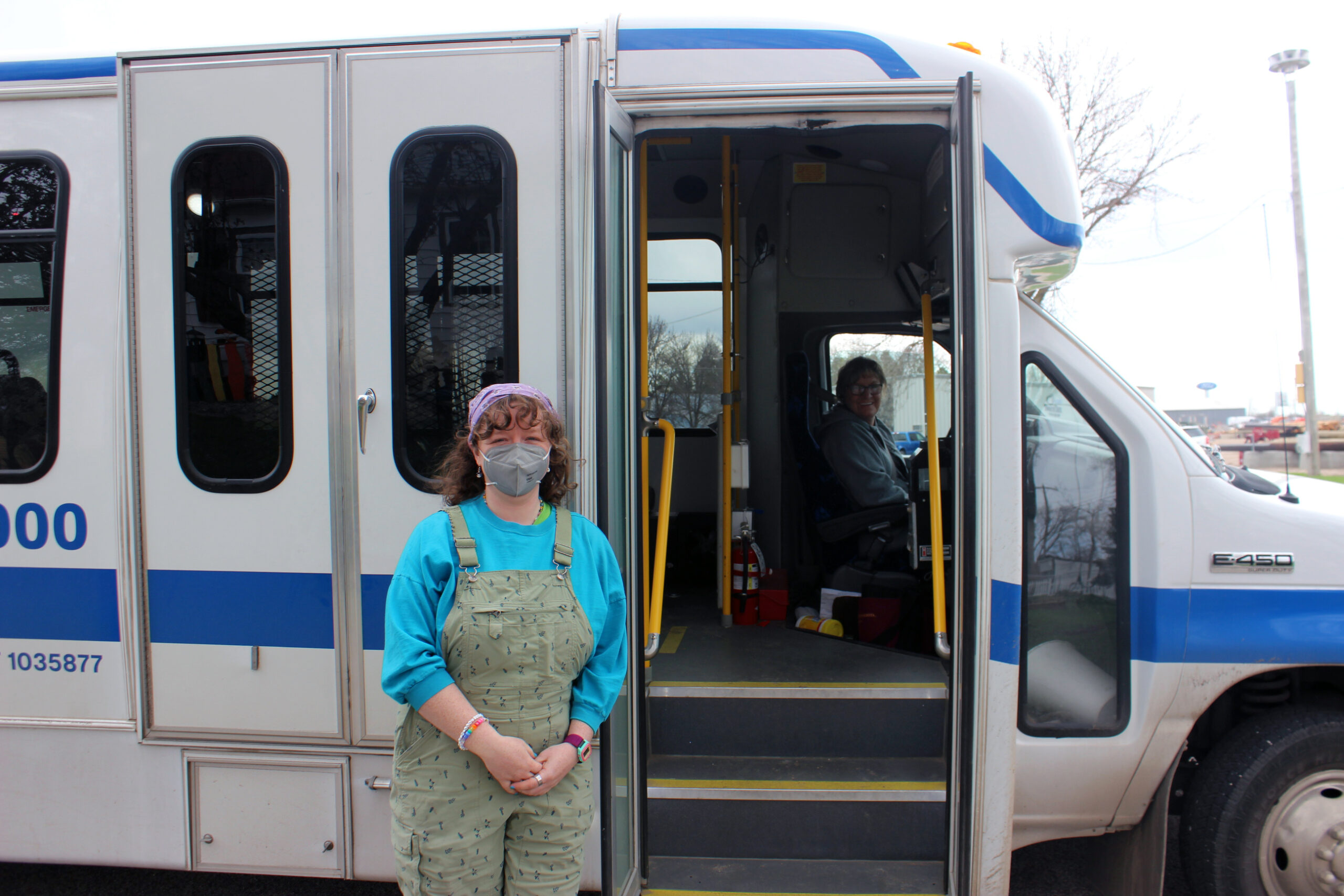
Syd Bauer, a part-time bus driver in Morris, Minn., calls a coworker who showed up in less than five minutes with one of the public transit buses. Photo by Amie Stager.

Share
In 2018, sustainability intern Syd Bauer was in a basement office in Morris, Minn., working on a solar panel project when they jokingly asked, “What if it was me that drove the city bus?” They talked to the transit coordinator, and six years later, Bauer is still driving the bus, as well as organizing around climate justice and Covid safety.
Originally from Jordan, Minn., Bauer has lived in Morris for almost 10 years, moving there permanently after studying biology at the University of Minnesota Morris. Located in West Central Minnesota in Stevens County, Morris is a small town of around 5,000 residents with an economy depending on agribusiness. The West Central Research and Outreach Center, part of the university, runs a research farm there devoted to projects on agriculture and sustainability, including one of the only university operations raising a conventional dairy herd right beside an organic one.
“When I graduated, I was like, I’m just gonna hang out, get a dog, drive the bus,” says Bauer “Then a year went by and that’s when the pandemic hit. So I said, I will continue doing this. Hanging out and having a dog and driving the bus.”
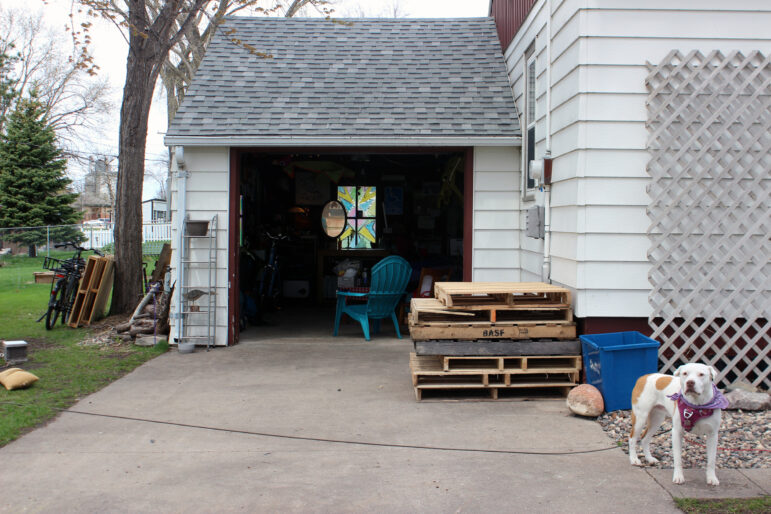
As a part-time bus driver, Bauer is a member of AFSCME Local 2022 which represents general employees of the city of Morris. Bauer has also worked for Stevens County establishing the organics recycling program. In 2019, they also helped coordinate a global climate strike in Morris.
According to Bauer, the strike event led to the creation of the West-Central Minnesota Climate Network, a group that shares sustainability resources. Bauer was recently awarded the University of Minnesota Climate Adaptation Partnership’s Climate Adaptation Award for their commitment and leadership in these roles. “As a basis for climate efforts, it’s not just how many solar panels can we install, it’s how many neighbors do we know?” Bauer says.
Bauer also co-founded Mask Up Morris, a group of community members educating about and distributing masks to spread awareness about pandemic safety and community care. For them, their values of accessibility, safety, and community connect these issues together.
One warm summer day, Bauer sat down with Workday Magazine in their garage to talk about driving, climate justice, and Covid consciousness. This interview was edited for clarity and length.
Workday Magazine: What’s it like driving transit in Morris?
Syd Bauer: I usually drive Mondays and Thursdays from seven to five. Next year will be the 50th anniversary of Morris having a public transit system. Back in the late ‘60s and the early ‘70s, it was a family-run operation like a taxi service and it still works that way. It’s similar to the mobility rides or the dial ride service that you’d have in the cities. But since we are rural, it functions fully that way here. We usually have about four or five buses going at a time during the business day and one on the weekends. It’s 6 a.m. till 10 p.m. service every day of the week.
We bring a lot of folks routinely every single day. We bring a lot of preschoolers to school because they’re not allowed to ride the school bus yet. We bring a lot of folks to the Developmental Achievement Center for work. We bring a lot of folks to work at the university. Every day people will call and say, “Put me on the schedule.” You’re at home, you need to go to the hospital, the hospital pays for all rides. So you call us up and say, “I gotta go into the clinic, I gotta be there by 10,” we’ll get you there. We have a lot of immigrant workers in our community and will bring a lot of folks out to the processing plant. But we usually just stay right within the city limits. I’ll hit 80, 90 miles just in town.
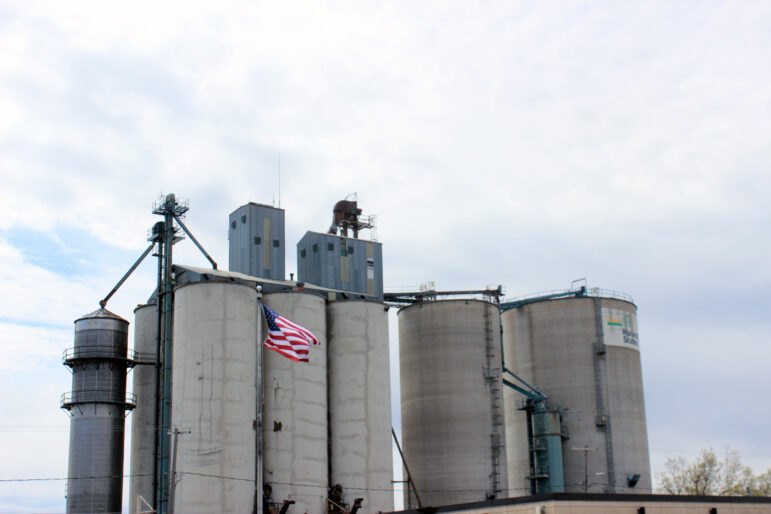
WM: I’ve been thinking a lot about “green jobs” versus “low carbon” jobs, how things are labeled something that’s sustainable not just for the environment, but for people. How is transportation part of that?
Bauer: As part of our city’s sustainability efforts, our coordinators have applied for grants to get an electric bus for the city. Hopefully, that’ll happen by the end of the year, and our new bus garage will have plugins and maybe solar in the future.
We had a huge, disastrous windstorm here two years ago. Hundred-mile an hour winds blasting through town. It was one of the only times I’ve worked the night shift and I was the only bus in operation. I was waiting to bring somebody out to his camper at the campgrounds because he heard there was a storm coming down. As I’m sitting there, I watched the wind come into town, and I watched the big metal dumpsters get blown down the alleyway, and I watched the power go click, click, click, off throughout town. It was still bright out. Hundreds, probably thousands of trees came down and power was out. For at least three hours, I was out in the bus, during a probably climate-induced windstorm. I had to get a few people home who were out. Some of our disabled community, some of our elderly community were out for dinner and still needing to get home.
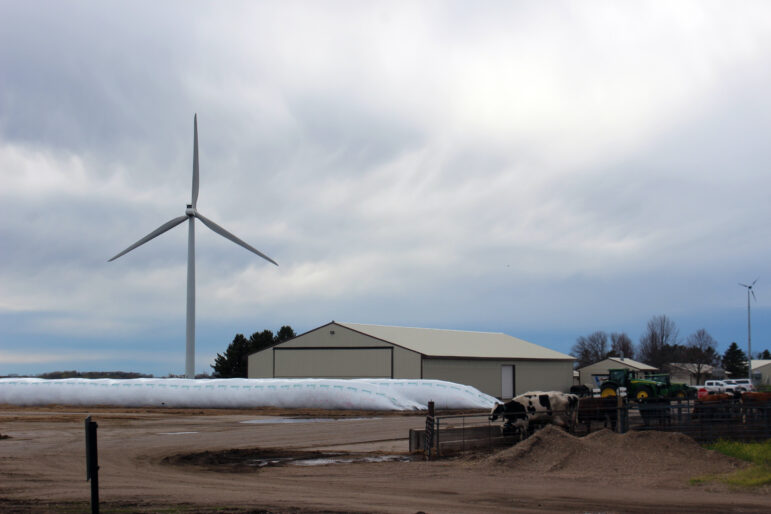
WM: This is a union job right? What’s the union like?
Bauer: Our bargaining unit is for all general city employees. The public works city employees have their own local. All transit drivers are eligible. We are just a handful of folks who are pro-labor in a small rural town working for the city government.
The first couple of years, I wasn’t actively aware of the bargaining going on. Leadership has shifted and we now have a younger crew of folks kind of trying to revamp and rethink and rebuild our little group. Our current president is one of the full-time librarians. She’s taking some responsibility to make sure that we are actively engaged. I engaged in bargaining for the first time this past year. It was kind of a big deal, because we just got a brand new city manager. All these new relationships were established, and it was just a group of ladies on either side of the table, so that’s interesting.
WM: The relationships made in small towns are really important for how the town functions, right?
Bauer: It’s how we keep each other safe out here. It’s one of my favorite parts of driving the transit. Because I have a “map it out” systems brain, I can mentally map a bunch of different things. So I often know people’s names. I know where they live, when they go to work, and their routine. I’m aware of exactly who my neighbors are and how they are connected to the other people in this community. I know every single stop sign in this town.
WM: Safety is such a huge issue, especially with public transportation. Is danger something that you’ve ever had to deal with?
Bauer: Not really. We bring preschoolers to school, and their parents don’t have to be on the bus. The rule is, if your kid can get on the bus, buckle themselves up, you don’t have to come on the bus. People trust that their toddler can ride the bus by themselves and get where they need to go in this community, which is a big deal. We do have rules for bringing a little one somewhere. There has to be an adult that waves and says, “Hey, I see you, I see the little one.” I drive a lot of older adults around who otherwise can’t drive. The transit keeps us safe. It’s not something that we have to protect ourselves within or from. It is a part of our safety net here in this community.
WM: What is Mask Up Morris?
Bauer: Mask Up Morris is me wanting to help people feel more comfortable wearing masks if it aligns with their values. It mostly started out with me digging around on Canva and putting some of my words and my thoughts into things I can put on Instagram to share with my friends. I make little baskets filled with masks and we’ve got a couple of them around town. There’s one at the library.
If your family is going through a Covid bout and you want to wear masks right now, I’ll get them to you. It’s a mechanism for me and my family to make some of the values behind our Covid safety more visible and more accessible to people. This is just my attempt of saying, “Hey, there are people in rural Minnesota who care about these things.”
A lot of people will ask me and say, “Why are you wearing your mask? Covid is over.” Sometimes it’s uncomfortable to have those kinds of conversations. But it’s not uncomfortable in a bad way. Sometimes it’s just uncomfortable when you try to explain something to somebody that they do not want to understand.
WM: Conversation is really important, even though it can be uncomfortable, because people have their own ideas, their realities, and that’s the necessary work to be doing when we’re faced with collective crises like climate change and pandemics. So what are we doing to build community now?
Bauer: People are never gonna shut me down when I say, “I wear my mask because I care about you.” I’ve known this for a long time since being a teenager is people–that’s what I care about. That’s what I want to be engaging in. It doesn’t have to be my career, it can be just who I am.
We are a little rural, conservative, leftist hodge podge of a community because we have a university here. You see a lot of young queer people walking around town at the grocery store with farmers, and you can sometimes tell who is who. Wearing my mask definitely identifies me as somebody who might be in a certain group. But I also am so well established in this community that people know who I am. I think it places me in a very weird, middle ground of the webs, both just as who I am, but also, people see me and are like, “What? Who are you? What are you doing here?” If they don’t immediately know me. So yeah, sometimes–not for me anymore–it can be intimidating to wear a mask in rural America.
WM: How did the pandemic affect you as a young person in a time of transition who was also working?
Bauer: I remember the first time a friend of mine passed away who had ridden the bus for a long time. We had gotten to know each other throughout seeing each other every couple of times through the week. That hit me in a really weird way. I haven’t been around a lot of death. It was a reminder that there are people that I am not engaging with all over this community who are going through things I will never know about. More people I knew were getting violently ill or dying, and it increased rapidly and very visibly for me. In the various different communities, assisted living homes, the amount of people who no longer lived there had declined. The routes had shifted, people were dying. My current partner and I met online in early 2020 as some of that loneliness and that isolation set in. He has a disability and part of the reason I’m Covid conscious is because I love him so much.
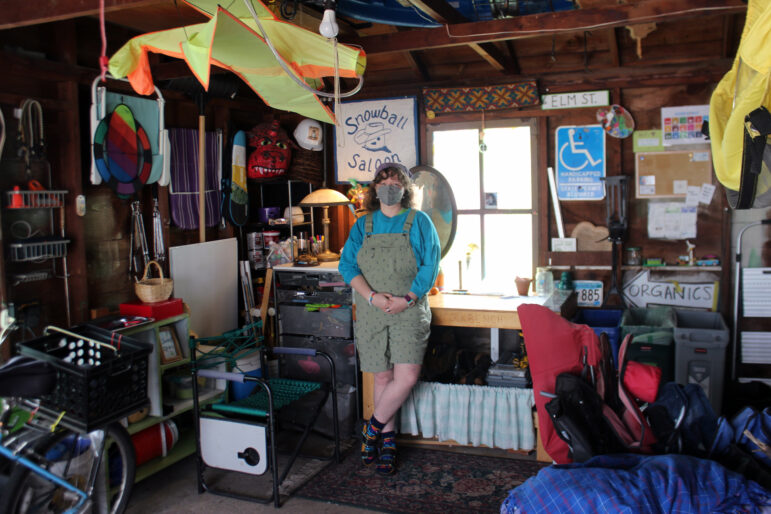
WM: If you had everyone from Minnesota in a room, what would you say?
Bauer: I would be asking more questions. I would want to be interacting with people. Not hollering. I’ve been good at hollering. I think I need to practice my inquisitiveness. I’d be asking what’s meaningful to people, and what brings people joy. What’s something that you want to do that you haven’t done? I’m not confident that I would do it. But that’s what I want to be doing more often.
This story is part of the Greater Minnesota Worker Listening Project series, a profile series on union and non-union workers in Greater Minnesota and other rural communities.

